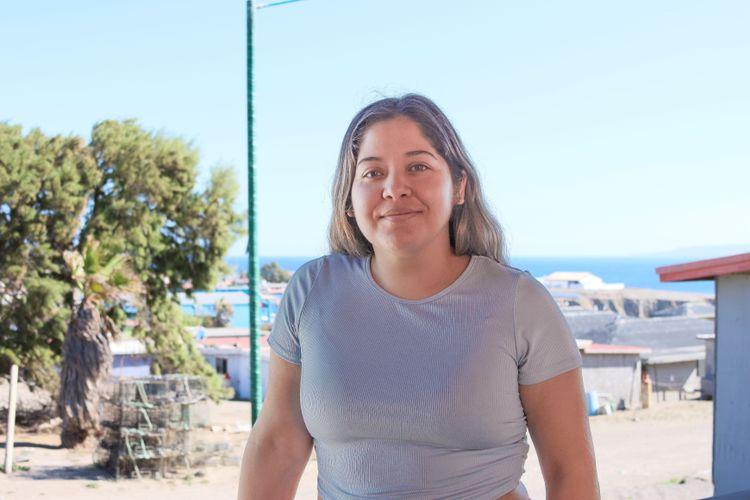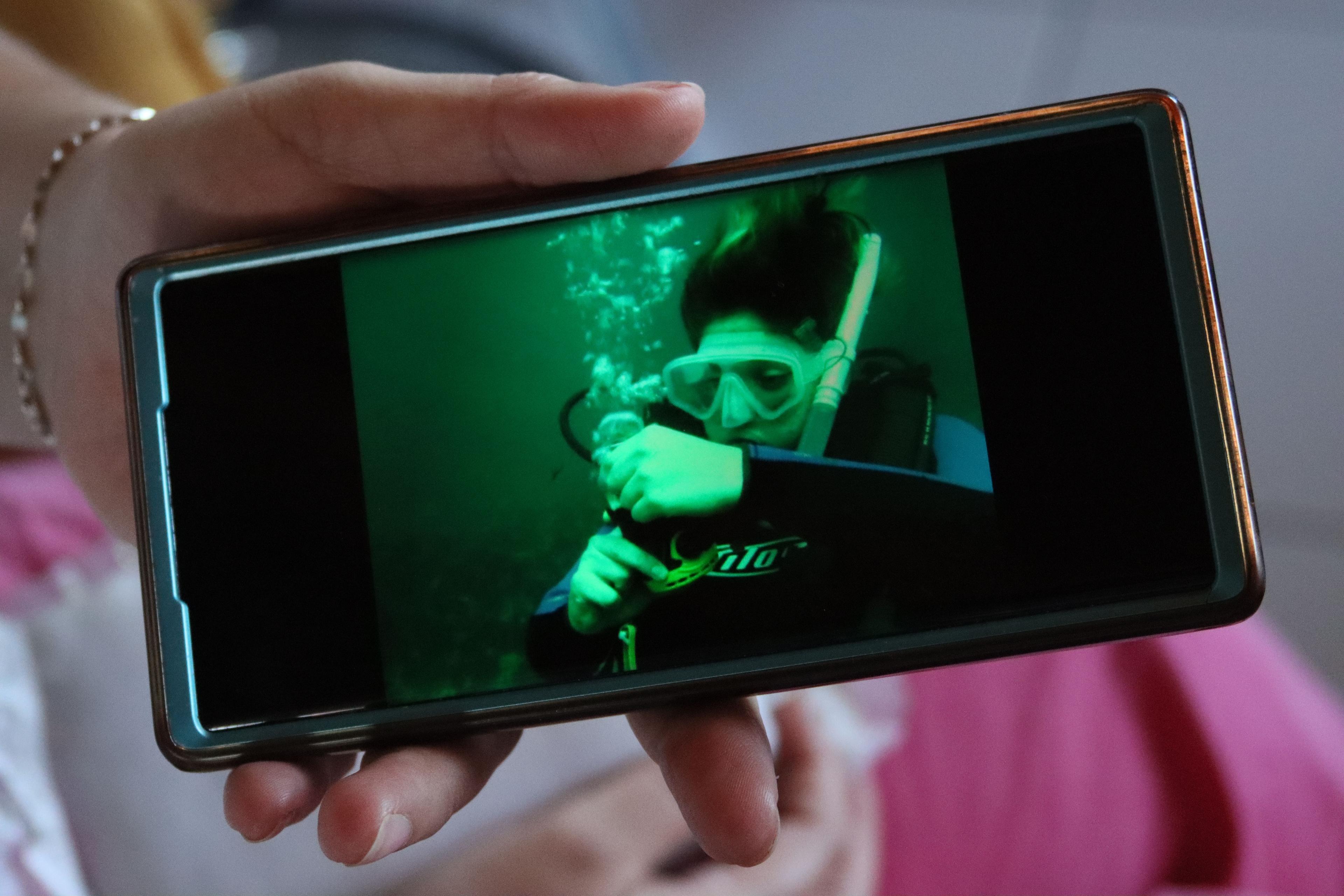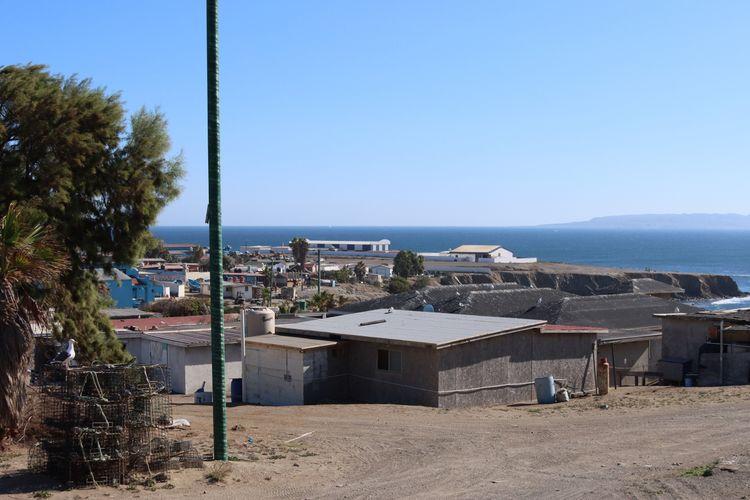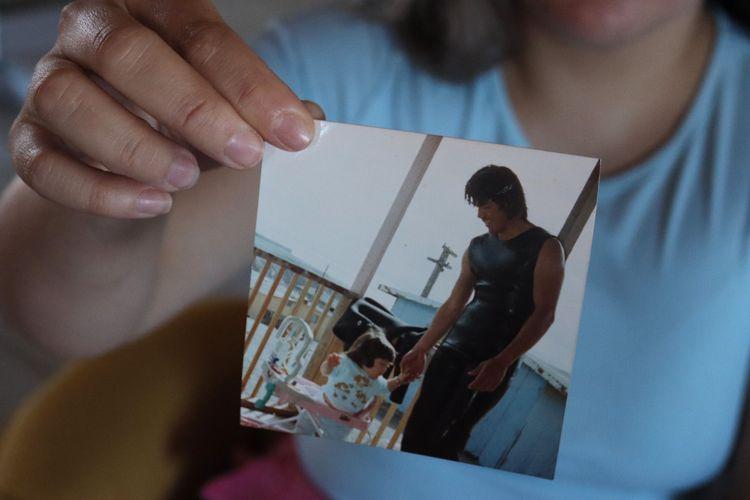Mitzi didn't think he could be a diver like his father. Not because she didn't want to, but because she had never seen herself as one. On the island where she grew up, it was not customary for women to participate in men's jobs. This is why he was surprised when, as a teenager, he saw a group of biologists diving. That sowed concern for him.
Like Mitzi, it happened to other women from Isla Natividad, located in the North Pacific, about 40 minutes from touching land with Baja California Sur. Diving was common in this town for male fishermen, but it became a necessity in 2006, when they voluntarily agreed not to fish for one of its most important species: abalone (Haliotis).
They had been experiencing declines in fish production for some years and they agreed to stop the catch to contribute to the regeneration of the species. A local consultation led the Cooperative Society of Divers and Fishermen, the main authority figure on Isla Natividad, to reserve marine areas. Two blocks were allocated to the sea from which nothing would be extracted for at least six years. However, they needed monitoring to measure the results of their decisions and obtain scientific data on what was happening under the sea.
So they were trained as monitor divers with a Community and Biodiversity (COBI) program, an organization that works with fishing communities in that region. And it was in one of those trainings given by divers and divers that Mitzi Leal, at 17, saw that women could also dive.
“But at that time we didn't think of being included in such an activity. Even men didn't think women were going to join,” Mitzi says more than 10 years later.
View of the town on Isla Natividad. Photo: Patricia Ramírez
Inhabited side of Natividad Island. Photo: Patricia Ramírez
...
There are less than 700 inhabitants on Natividad Island and fishing is the activity that drives the town. Generations of men who are dedicated to capturing species such as lobster, abalone and white have passed through the cooperative. They are also in other jobs such as product processing or maritime surveillance.
Although they have been a community that lives by and for fishing for 80 years, women did not usually get involved in the tasks of the sea. Most of them completed a basic education and then dedicated themselves to being wives and mothers. The jobs they had been able to occupy in the field were as secretaries or workers in the processing plant. Some others learned a little more from fishing because they accompanied their husbands on some catches, dives or swallows, but always on the sidelines of the main tasks.
Elba López recalls that she didn't even know what a marine reserve was or what monitoring consisted of. Even when it was an important issue on the island. In addition to this, unlike most, Elba had not grown up in Natividad, but in a town in Sinaloa, and it was at the age of 16 that she moved with her parents.
“I arrived without knowing how to swim. Not knowing anything about the sea,” Elba says. And even though his years on Natividad Island made him learn—to the extent that he enjoyed looking at fish when he snorkeled—his life plans did not contemplate fishing, water, or anywhere other than his own home.
“The truth was that I had no vision for the future other than raising my children well, being with my husband and living a quiet life on the island... I didn't have any personal plans,” Elba recalls.
In 2011, the initiative was set up for the group of trainers to teach women to dive. Elba was interested in taking part, but was unable to register. I was pregnant and already had a small child, so between parenting, caring and household chores, it was impossible to add up. To their amazement, the training was repeated the following year.
Initially, in the eyes of the community, the courses seemed like a concern that would be allayed. Women weren't convinced that diving could transcend either. But it was enough to feel the thrill of putting on the suits, using the diving equipment and diving into the sea to see and learn about the species they had known all their lives out of the water.
It was in 2013, two years after the first training, when COBI invited those who had been trained to join a monitoring course to go with men to obtain data. The cooperative did not refuse, but annoyances arose, mainly, among older fishermen.
The divers recall that they received disapproving comments about their participation: that if they would only get in the way, it wouldn't help to have them underwater, that it was just a concern. To them, working at sea seemed more of a challenge than an achievement.
“We are mothers, we are wives, we are women from the community who were not used to anything other than being in our house and fulfilling the role of the home. So we had to get on the boat and show them that we could be partners, have equal participation and work shoulder to shoulder,” Elba says.
Although there were difficulties in dealing with community rejection, Elba says that her biggest challenge was in her own home, with herself. She had a 10-month-old girl and a three-year-old boy when she started diving, so she had to figure out how to do her job as a mother, while taking on the responsibility of monitoring.
“On a personal level, it was showing my husband that I could leave the children and start a new adventure. And more than anything, I couldn't prove to myself because I didn't have studies or because I didn't know right from the start what a marine reserve is, what its function is and how the data is extracted,” Elba recalls.
At the end of the monitoring course, Elba was selected to be integrated as a monitor. Mitzi Leal was also part of this election.
Photograph of women's diving. Photo: Patricia Ramírez
Women processing fish at the Isla Natividad processing plant. Photo: Patricia Ramírez
...
Mitzi has an emblematic photo with her father. Both are located at the entrance of your house. She, small and in the walker, is standing next to her father, who wears the diving suit still wet after leaving the sea and is holding his hand. She says she is salty-blooded like the rest of her family who grew up on Nativity Island.
Like that photograph, he has other memories of when he went to the beaches of Mulegé, in Baja California Sur, and his father would carry it on his shoulders, tell him to hold his breath and submerge it in the water. That's why, the first time he went out to sea to dive, any glimmer of fear disappeared. “I was already aware of being under water for a moment, calm, breathing through my mouth,” she recalls.
Although Mitzi is the daughter of a diver and married a monitor diver, until before the courses she maintained her life as a housewife. It seemed to her that in the cooperative society they didn't have the option of occupying a space to work, so she didn't even think about it. Until she saw the opportunity to learn and become a monitor.
A decade after that time, Mitzi Leal, Elba López, Sulema García, Esmeralda Albañez and Elsa Cuéllar formed the group of overseers called the Sirens of Isla Natividad and are dedicated to citizen data science (which is the name given to research projects that work with science beyond traditional places).
Currently, at least once or twice a year, mermaids leave the island and get lost at sea from morning until after noon. Thanks to their observations and analysis, the fishing cooperative can follow the monitoring of marine reserves. The increase and decrease of abalone and other species is known, allowing them to make decisions about the direction of fisheries.
Photograph of Mitzi Leal with his father Ramón Leal. Photo: Patricia Ramírez

Mitzi Leal. Photo: Patricia Ramírez
Although there is no key moment in the acceptance of the women of Isla Natividad in the work of the sea, their constant participation led them to take charge of diving for the cooperative, even as leaders of the monitoring groups. His work is often talked about in the town. The atmosphere of recognition and the pride of more than 10 years of seeing them perform predominate.
Even in 2021, Elba appeared for the first time before the Cooperative Society of Divers and Fishermen of Isla Natividad to discuss the results of the data collected. It is a moment that set the tone for the island. Never before had a woman attended a fishermen's meeting, much less had she taken the floor. The following year he performed again.
The mermaids haven't just been in front of their community. Also in other places such as El Rosario, Baja California; and even countries such as Panama, to which they were invited for the International Congress of the Gulf and Caribbean Fisheries Institute.
“I never imagined riding a boat from La Paz to Ensenada monitoring, discovering other dive sites, meeting people such as biologists and oceanographers from universities such as Stanford, Chicago or the Autonomous University of Baja California. If they had told me before that one day I would be working with these people, I would have told them that they are crazy, that I didn't have those skills to be able to learn to do what I'm doing,” Elba says.
The impact has also been personal and has multiple reflections, all of which coincide in telling their stories. Their satisfaction lies in learning; in the new thinking about who they are and what they can do; in the pride they receive from their daughters, nieces and other women.
“It's not bad to be a housewife, but learning something new and being able to make more women proud is an achievement in my life that I didn't think I would have,” adds Elba, now that working at sea feels more like an achievement than a challenge.





Comentarios (0)